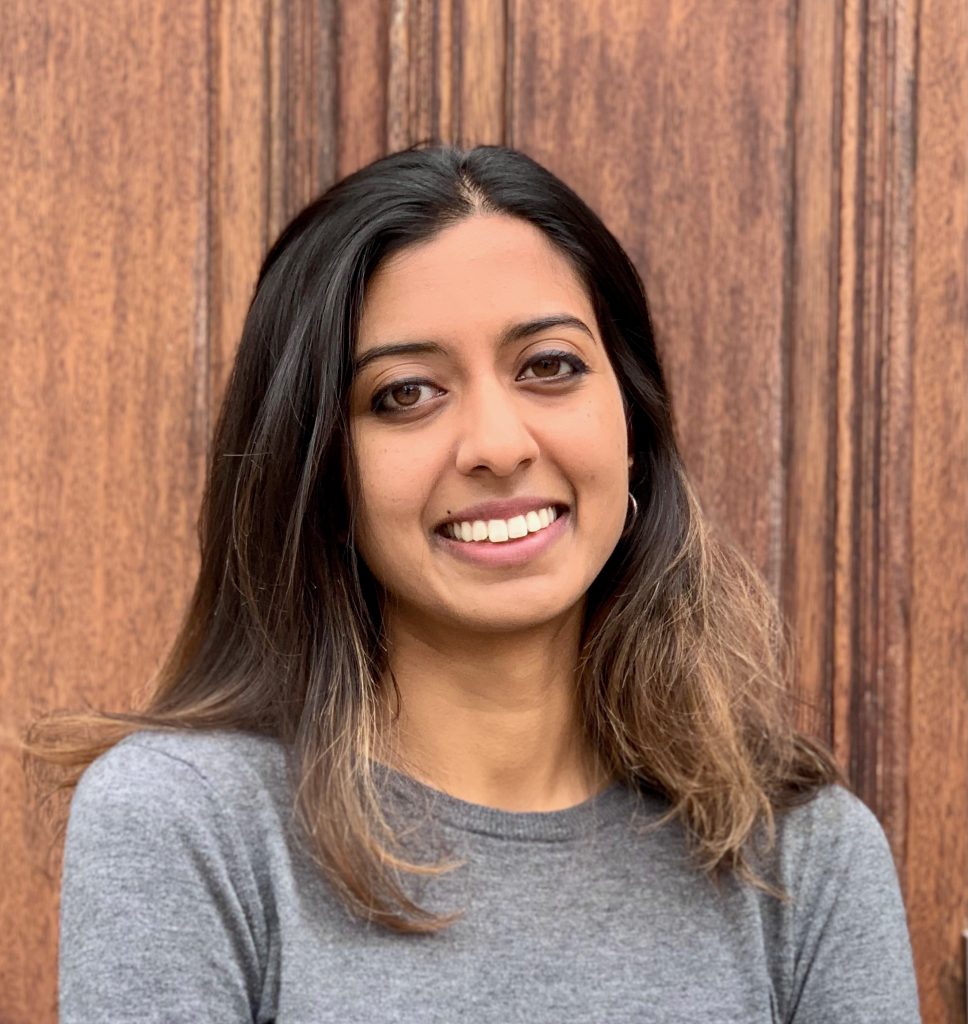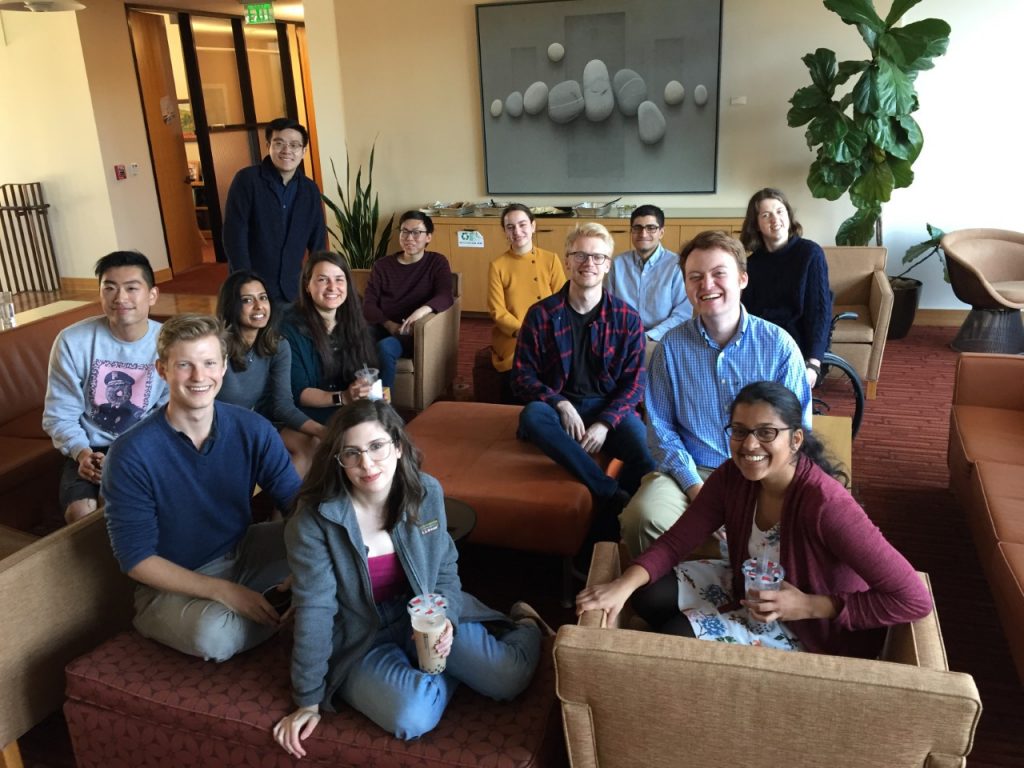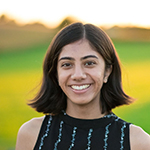Maya Durvasula, T’18, and a current Ph.D. student at Stanford University, grew up in Albuquerque, New Mexico. “And it’s hard to grow up there without a very keen sense of what it looks like when policy doesn’t work for people,” she remarks.

After graduating high school with an interest in politics, she decided to take a gap year and bounced around organizations in New Mexico, working for the state legislature, political campaigns, and even a think tank. In hindsight, she says, “Having a block of time where you have time is super helpful.” One thing she learned was that she didn’t really want to do politics. “People were making policy, but debates were heavy on feelings and politics and light on facts.”
A high school mentor suggested that maybe she would get along better with economists than politicians, so once she got to Duke, she took that to heart.
As a first-year, she says, she knew she wanted to be exposed to a lot of things, and she knew she wanted to do research, but she wasn’t really sure what “research” meant for a first-year. In the beginning, she cold-emailed a lot of people and received multiple rejections.
After rejection, though, eventually something clicks, and for Durvasula, what clicked were three main research projects she undertook in her time at Duke.
The instinct is always to start with where you want to end up and then work backward, but you don’t know where you’re going to end up”
Maya Durvasula, T’18
Her first experience in a research group was a joint venture between an academic team in China and at UNC-Chapel Hill. Their group studied behavioral interventions to increase the uptake of health technologies, with a particular focus on sexual health. Usually, as a country industrializes, the rates of sexually transmitted infections will drop, but in China, rates of HIV and syphilis continued to rise as the economy grew. Durvasula and the team looked at different interventions that might make testing for HIV more attractive to patients, such as alternative testing locations, different advertisement design, and compensation.
She also did a project with Duke professor Bob Korstad in the history department and the Samuel DuBois Cook Center on Social Equity, looking at the history of housing in Durham. Finally, she worked with her primary advisor, Duke economics professor Duncan Thomas, in his joint lab with UNC’s Elizabeth Frankenberg, on projects related to household decision-making in Indonesia.

A notable part of her undergraduate time at Duke was winning the Truman Scholarship. What was most valuable to her about the Truman was the people she met. “Most people I’ve met are defined by picking something they care about and doing a lot with it,” she says. And it’s inspiring to be surrounded by people who love what they do and immerse themselves so wholly in it.

Durvasula graduated Duke with numerous experiences and accolades under her belt. But from there, how did she find her way to doing a Ph.D. at the intersection of law, technology, and economics? As she describes it, the interplay between economics and law is inextricable. Both economic incentive and legal institutions affect the rate and direction of innovation, which affects how quickly technology is developed, and ultimately what products ends up in our hands. A question at the heart of her research is wondering how to make sure the value of this technology is distributed equally across society.
So five to ten years from now, where will we see Durvasula? She sees herself remaining in academia, although at some point she wants to work in public service. “I love learning new things, and I want to take advantage of being in a space where people are always willing to teach you things.”
And in that vein, her advice to a curious Duke student is to explore everything. “The instinct is always to start with where you want to end up and then work backward, but you don’t know where you’re going to end up,” she said.
Pursue the questions that you find exciting, and let that point you in the right direction – clearly, Durvasula is proof that this process will take you places.

Post by Meghna Datta, Class of 2023
